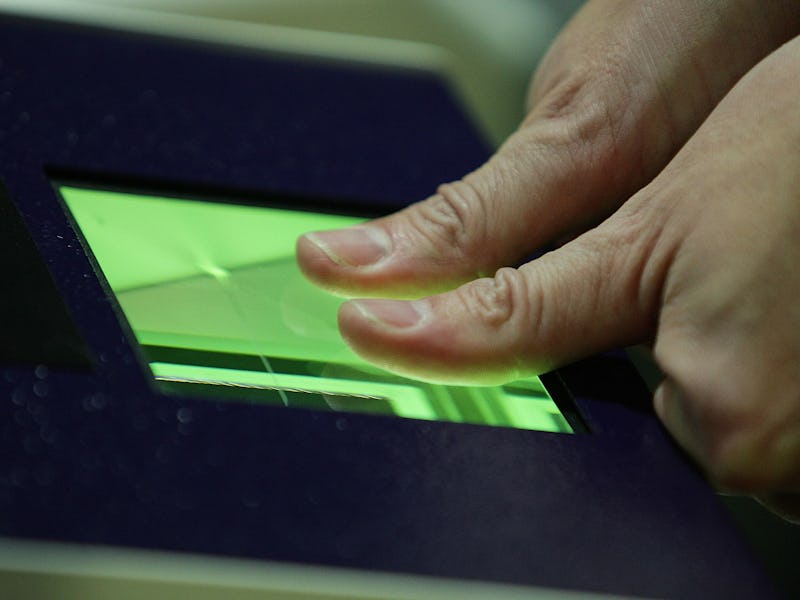
While most password hacking is associated with shoddy protocols, like in the case of the recently revealed Yahoo hacks, simply transmitting data over wifi or Bluetooth can expose users to hackers trying to break encrypted codes. Researchers at the University of Washington think they have a solution: passwords that can be sent securely through the human body using low-frequency transmission.
Reversing the same system used by fingerprint sensors, like that on an iPhone, the new technology would be able to create transmissions on the human body that would allow for a more secure sensor-based lock system.
“If you use wifi or Bluetooth everyone can hear the information,” Shyam Gollakota, assistant professor of computer science and engineering, tells Inverse. In contrast, using a password that is transmitted through the body reduces that gap in transmissions that hackers can exploit to read the signals.
Secure signals would travel directly from the body to devices.
In traditional touch-based password systems, sensors use transmissions from the body as input data. The engineers devised a way to reverse this process in order to use signals as an output that corresponds with password data. Using already existing smartphone technology, data that authenticates your identity can travel throughout the body to a receiving device that needs to confirm who you are, such as a door lock or glucose monitor.
In tests, researchers found that the transmissions systems worked on people regardless of weight, height, or what position of movement the body was in, even if such variables weakened the signal.
There are concerns, however, that the technology could just lead to a new kind of body-hacking. Gollakota tells Inverse that while it would still be possible for someone to steal the password if they were touching the body part as it was being transmitted, the theft would be much more transparent than current password hacking. It’s unclear if the new system would be equally susceptible to finger-print spoofing, but fingerprints might not be the primary form of biometric scanning for much longer.
Right now researchers are touting the value of the technology in medical wearables and security locks. But future technology could expand functions to exchanging business contacts or even full-sized files.
“If I want to exchange my key to or contact information to a person I just met, all I would need to do is need is to shake my hand,” says Gollakota.
Because touch-sensor technology is already so prevalent, the future of body-based transmissions really “depends on the market demand,” Gollakota says.